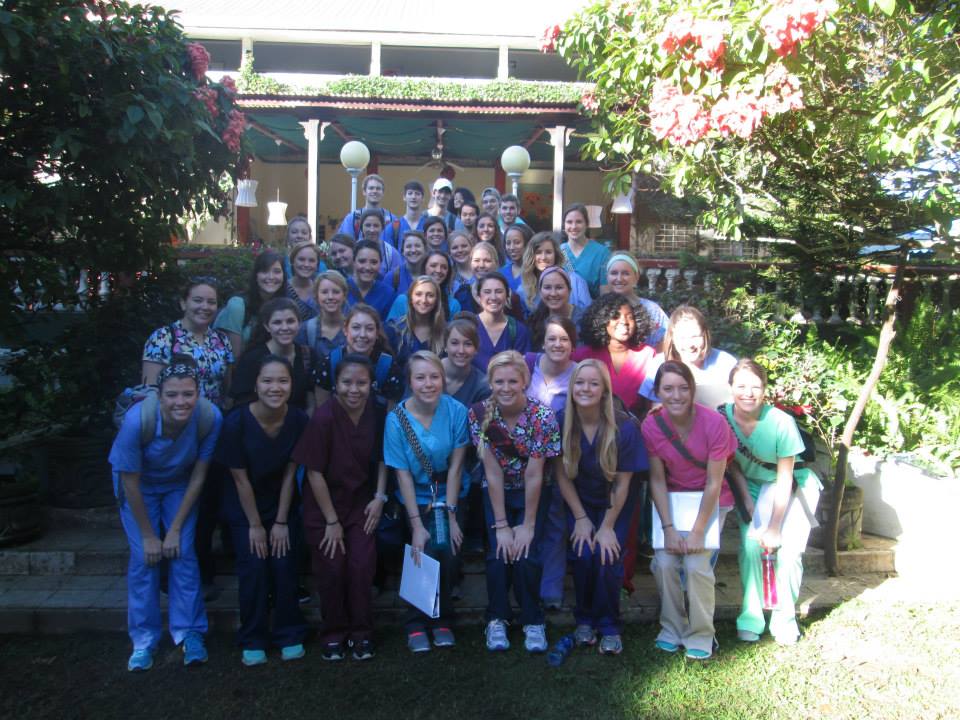By Aaron Deyo, Junior Honors student majoring in Chemistry with a minor in Neuroscience
This past December, I was fortunate enough to travel on a medical service trip to Nicaragua for one week with UT’s Global Medical Training club (GMT). GMT provides a tremendous opportunity to experience a new culture while gaining valuable hands-on medical experience at the same time. As a hopeful medical school student, I knew that partaking in this trip would be the perfect decision. The creation of GMT two semesters ago could not have come at a better time, and in many ways it was better than I ever could have imagined.
I came back from the trip now possessing wonderful memories with some of my closest friends, as well as becoming a more well-rounded and worldly individual—especially when compared to the sheltered American that had left seven days previously.
The nation of Nicaragua is one that gets overlooked in terms of poverty. However, according to recent studies, Nicaragua ranks second in the Western Hemisphere in poverty levels with 40 percent living on less than 2 dollars a day. Although it was dark when we arrived, I could partly make out the outlines of disheveled houses and rundown shops on both sides of the street. The first night was one in which I was fully thrust into Nicaraguan culture at its finest. Delicious cuisine and beverages, fast-paced music, and hardly decipherable Spanish slang all came at me so suddenly. In the daylight, the houses I had viewed the night before were shacks surrounded by a moat of sewage. Despite these horrible eye-opening conditions there were refreshing images such as miles and miles of undeveloped land, something that I’m not very used to.
Later in the day, we attended a long orientation in which we learned much about Nicaraguan culture and the medical diagnoses that we were to look out for. Of all the information that we received that day, I will surely never forget the pay scale for Nicaraguan professions. Doctors made only 500 córdobas a month, which amounts to a measly nineteen dollars in America. While doctors in America live very comfortably, those in Nicaragua do not do so well by any means.
I could feel the gratitude being passed along to the group from those that we had helped and it was incredibly moving.
The next four days were our clinic days. Each day we would travel to the poorest villages in the area and work over a period of eight hours to treat as many Nicaraguans as we could. Overall, we treated almost 500 people!
The need for medical attention was even greater than I had originally perceived, so it was great to know that they were all being served. Nonetheless, it was incredibly sad thinking about the other communities that we could not help, consisting of people who continually suffer with various ailments every day. They are often unable to seek medical attention, whether because of the high cost of medication or the difficulty of traveling to one of the small number of hospitals. The people we encountered were beyond thankful, never failing to smile and repeat “gracias” numerous times. I could feel the gratitude being passed along to the group from those that we had helped and it was incredibly moving.
On this trip, I learned that Americans are much more privileged than billions of others around the world, and despite how much we think we know it, we continue to live our lives with no remorse. Although I will continue to enjoy the pleasures of America, I will try to do so sparingly and without complaint, while keeping those in Nicaragua in mind and helping those in need whenever I can.
So am I “ready for the world” just yet? No, I don’t think so. My first taste of a foreign country has given me some much needed perspective, but I still believe I have a ways to go to become a truly open-minded global citizen. I am very thankful for those who went out on a limb to create GMT. The project gave me the nudge in the right direction to put myself out of my comfort zone and make a difference. Together, GMT and the Chancellor’s Honors Program have provided me with a wonderful experience that I will never forget.


